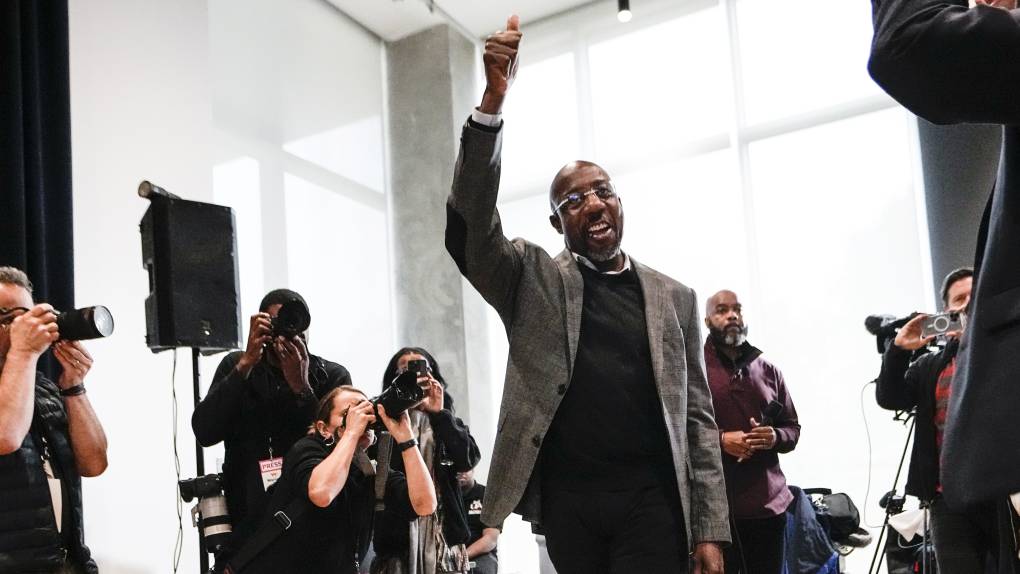McConnell only dropped his demand after moderate Democrats Kyrsten Sinema of Arizona and Joe Manchin of West Virginia said they wouldn't vote to undercut the filibuster, leaving Schumer short of 51 votes needed to kill the minority party protection.
Without McConnell's capitulation, the chamber would have been paralyzed, with Senate Democrats unable to take full control despite being in the majority.
No one-senator 'veto' power
Democrats now have enough wiggle room to lose one vote in their caucus and still move bills through the chamber without issue.
Not only will Vice President Harris not likely have to be called in for as many tie-breaking votes, the extra seat has also changed how they factor Manchin into their political calculus.
The West Virginia moderate often held his party hostage in the early years of Biden's term, leveraging Democrats' narrow majority to trim some of the president's legislative priorities on votes that needed complete Democratic unity to pass. Manchin often cites not being comfortable voting against the will of his constituents.
"I have always said, 'If I can't go back home and explain it, I can't vote for it,'" Manchin wrote in a 2021 statement explaining his opposition to Biden's Build Back Better Act as it was initially pitched.
Though the bill eventually passed that November, Manchin forced negotiations that reduced its size, scope and cost.
Decisive committee makeup
Because the current power-sharing agreement equally splits the Senate committees, tied votes must undergo an additional vote on the Senate floor to move ahead with bills or nominees.
But Warnock's win means Democrats will likely have an extra seat on every committee, clearing an open path to passage when senators ubiquitously break on party lines.
"With 51, we can go bolder and quicker — to show Americans what Democrats stand for," said Schumer.
Still, the next two years in Congress will likely look different than the last two. Republicans have captured the House majority and with it, waned Democrats' potential to pass major legislation.
As such, the party will likely seek to confirm as many judges as it can before 2024, and a 51st seat makes that easier too. A rules change introduced in 2013 by the former Democratic Majority Leader Harry Reid allows just a simple majority for these confirmations.
Speaking ahead of Warnock's election, Biden plainly forecasted what a 51st seat would mean for his party. "It's always better with 51," he said, mostly weighing the potential for committee compositions.
But the committees aside, Warnock's win offers Democrats a clear path for action for the final years of Biden's term.
And every one of those seats is going to matter if Democrats have any hope of holding onto the Senate beyond 2024. The party faces a difficult landscape to hold onto control of the chamber in two years with incumbent Senate Democrats up for reelection in places like West Virginia, Montana and Ohio, all Republican-leaning states.
NPR senior political editor/correspondent Domenico Montanaro contributed to this report.

